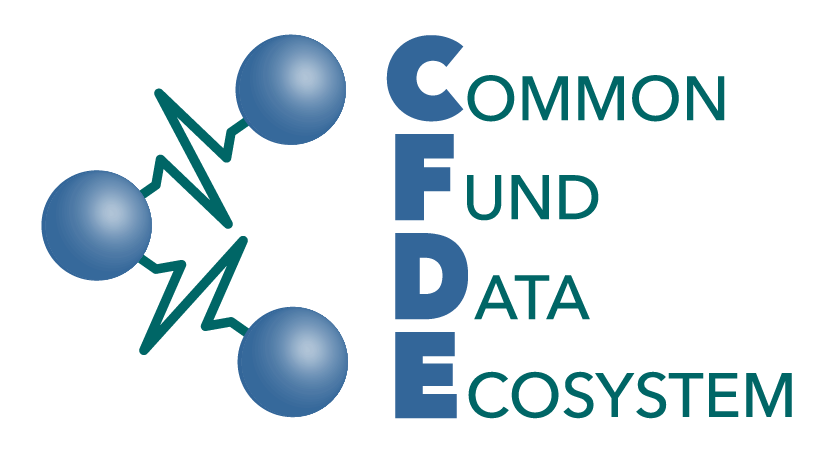Engagement Opportunities for Common Fund Programs
Common Fund Data Ecosystem (CFDE) Process for Rolling Submission of Engagement Opportunity Award Plans Background On January 29, 2020, the NIH Common Fund posted OTA-20-005 Engaging Common Fund Data Coordinating Centers to Establish the Common Fund Data Ecosystem. This announcement invites Engagement Plans from Common Fund Data Coordinating Centers (DCCs) to engage with the Common Fund Data Ecosystem Coordinating Center (CFDE-CC) and with each other to establish the CFDE. The original announcement provided dates for two rounds of Engagement Plan submissions and review. Based on lessons learned from the first round of Engagement Plan submission and review, and to maintain maximum flexibility in the face of the coronavirus/COVID-19 pandemic, the NIH Common Fund has switched to rolling submission of Engagement Plans, effective May 2020. This change means that the dates for the second round of Engagement Plan submission are no longer in effect. Engagement Plans will be accepted through May 2021. Changes to Engagement Plan Submission and Review Phase 1: Engagement Overview DCC Principal Investigators (PIs) from eligible DCCs who wish to participate in the CFDE must submit an Overview of their proposed engagement plans. The requirements for this Overview and submission instructions are described in OTA-20-005 and remain the same under the new rolling submission process. The review of Overviews will also remain the same; NIH will review Overviews and reach out to PIs within 2 weeks of receipt to provide feedback, if needed, and discuss next steps for developing Detailed Plans. Phase 2: Detailed Engagement Plans The requirements, submission instructions, and review process for Detailed Engagement Plans remain the same as described in OTA-20-005, with the following exceptions: Proposed partnering activities with other DCCs should be described as tentative plans, pending delivery of a detailed description of activities, milestones, timeline, and budget to be developed in collaboration with partner DCC(s) post-award. Applicant DCCs should reach out to potential partner DCCs during the development of their Detailed Engagement Plans to gauge their interest in proposed joint activities. Unless otherwise approved by NIH Common Fund staff in advance, initial proposed budgets should only include support for efforts to engage with the CFDE-CC and to develop detailed collaboration plans with DCC partners. Budgets for proposed DCC-DCC collaborative activities will be discussed with NIH as part of the detailed collaboration plans developed post-award. Once plans for DCC-DCC collaborative activities are established, support for these activities will be provided. Budgets may be submitted in any format as long as they address the requested information described in OTA-20-005. Proposers may want to use this recommended budget format. Budgets can be uploaded as a separate attachment and do not count against the page limit. Starting in Year 2, budgets should include travel for a yearly CFDE meeting, at least 2 different consortium sites for information exchange, 2 training workshops, and 1 cross-pollination workshop. Review discussions of the Detailed Plans will take place via videoconference, and will include the PI(s) from the applicant DCC and key personnel (up to a total of 4 individuals), the CFDE-CC PI and Training Director, relevant NIH staff, and external experts. Proposed partnering DCC PIs will not need to participate in the review discussion. Review discussions of the Detailed Plans will take place via videoconference, and will include the PI(s) from the applicant DCC and key personnel (up to a total of 4 individuals), the CFDE-CC PI and Training Director, relevant NIH staff, and external experts. Proposed partnering DCC PIs will not need to participate in the review discussion. Following the Detailed Plan review discussion, NIH anticipates initiating Other Transaction award negotiations within 2 weeks, and issuing awards within 5 weeks. The Financial/Agreements Officer is Linda Shariati, linda.shariati@nih.gov. The Common Fund Data Ecosystem Coordinating Center is looking forward to working with all of you, and we encourage you to reach out to Amanda or Owen at the Coordinating Center, or to describe your ideas to the slack channel so we can help identify other groups that may have a common interest. Full Engagement Opportunity Announcement
Training Resources
Common Fund Data Ecosystem (CFDE) Training Resources The CFDE's training website (https://training.nih-cfde.org/en/latest/) hosts tutorials and resources about accessing NIH Common Fund program metadata/data and performing common bioinformatic analyses. We are building training materials to facilitate finding and re-analyzing existing datasets! Upcoming workshops will be announced here and on the CFDE twitter account (@CfdeNih). Past workshops are listed on the training website home page. Updates to the website are detailed on the Release page. In 2021, we will be adding more lessons focused on conducting bioinformatic analyses using a variety of cloud-based platforms, including the Amazon Web Services (AWS), Google Cloud Platform (GCP), Seven Bridges Genomics' Cavatica platform, and the Broad Institute's Terra platform! Performing analysis in the cloud R03 researchers are eligible to participate in the NIH STRIDES program, which includes discounted rates to either AWS or GCP and user support/training. See the STRIDES FAQ to get started.
Use Case Library
Common Fund Data Ecosystem (CFDE) Use Case Library The CFDE's Use Case Library (UCL) (https://use-cases.nih-cfde.org/) captures essential scientific objectives and places them in the context of larger goals in the CFDE timeline. The UCL helps us to spell out details about the who and the what of use cases we'd like to support and turn them into reality. To help our library grow to include more use cases for clinical researchers, data scientists, and others interested in reusing data for biomedical research, we welcome and encourage you to contribute to the library! As detailed in the contribution guide, please submit use cases or ideas for use cases you'd like to see supported by the CFDE!

